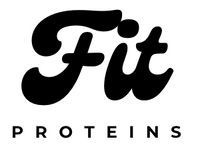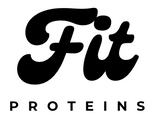The Best Plant-Based Protein Sources for Vegetarians and Vegans

Adopting a vegetarian or vegan lifestyle offers numerous health benefits, including lower risks of heart disease, hypertension, type 2 diabetes, and certain cancers. However, ensuring adequate protein intake can be challenging when abstaining from animal products. Here’s a guide to the best plant-based protein sources for vegetarians and vegans to help meet daily protein requirements and maintain a balanced diet.
1. Legumes
Legumes such as beans, lentils, and chickpeas are among the richest plant-based protein sources. They are versatile, affordable, and packed with fiber, iron, and essential nutrients.
- Lentils: One cup of cooked lentils provides about 18 grams of protein. They are perfect for soups, stews, and salads.
- Chickpeas: A cup of cooked chickpeas contains approximately 15 grams of protein. They are great in salads, curries, or mashed into hummus.
- Black Beans: One cup of black beans offers around 15 grams of protein and can be used in a variety of dishes, from soups to tacos.
2. Tofu and Tempeh
Soy products like tofu and tempeh are excellent protein sources and are incredibly versatile in cooking.
- Tofu: Depending on the firmness, tofu contains about 10-20 grams of protein per cup. It can be stir-fried, grilled, or blended into smoothies.
- Tempeh: Tempeh is more protein-dense than tofu, with around 21 grams of protein per 4 ounces. It has a firm texture and a nutty flavor, making it ideal for marinating and grilling.
3. Quinoa
Quinoa is a complete protein, meaning it contains all nine essential amino acids. One cup of cooked quinoa provides about 8 grams of protein. It can be used as a base for salads, added to soups, or served as a side dish.
4. Nuts and Seeds
Nuts and seeds are not only rich in protein but also in healthy fats, vitamins, and minerals.
- Almonds: One ounce (about 23 almonds) contains 6 grams of protein. They make a great snack or addition to oatmeal and salads.
- Chia Seeds: Just 2 tablespoons of chia seeds provide 4 grams of protein. They can be added to smoothies, yogurt, or used to make chia pudding.
- Hemp Seeds: Three tablespoons of hemp seeds contain about 10 grams of protein. They can be sprinkled on salads, blended into smoothies, or mixed into cereals.
5. Seitan
Seitan, made from gluten, is a high-protein meat substitute. A 3.5-ounce serving of seitan contains around 25 grams of protein. It has a meat-like texture and is often used in vegan and vegetarian dishes as a substitute for chicken or beef.
6. Edamame
Young soybeans, known as edamame, are another great source of plant-based protein. One cup of cooked edamame provides about 17 grams of protein. They can be eaten as a snack or added to salads and stir-fries.
7. Spirulina
Spirulina is a type of blue-green algae that is highly nutritious. One tablespoon of dried spirulina provides about 4 grams of protein. It can be added to smoothies, juices, or sprinkled on salads.
8. Nutritional Yeast
Nutritional yeast is a deactivated yeast that is often used to add a cheesy flavor to vegan dishes. Two tablespoons contain about 8 grams of protein. It can be sprinkled on popcorn, pasta, or used in vegan cheese sauces.
Plant-Based Protein Powders
For those looking to easily boost their protein intake, plant-based protein powders are an excellent option. They can be added to smoothies, shakes, or even used in baking.
- Variety of Options: There are numerous types of plant-based protein powders available, including pea protein, hemp protein, rice protein, and blends of various plant proteins.
- Convenient and Efficient: Protein powders are a convenient way to ensure you’re meeting your protein needs, especially post-workout or when you’re on the go.
Explore the range of high-quality vegan protein powders available at Fitproteins to support your dietary needs and fitness goals.
Incorporating Plant-Based Proteins into Your Diet
Incorporating these plant-based protein sources into your diet ensures you meet your protein needs while enjoying a variety of delicious and nutritious foods. Here are a few tips:
- Diverse Diet: Aim for a diverse diet that includes different sources of plant-based proteins to ensure a complete amino acid profile.
- Meal Planning: Plan meals ahead to include a good balance of protein, carbohydrates, and fats.
- Snacking: Keep high-protein snacks like nuts, seeds, or protein bars handy to maintain energy levels throughout the day.
By focusing on these nutrient-dense plant-based proteins, vegetarians and vegans can enjoy a balanced diet that supports overall health and wellness. Explore the variety of recipes and products available at Fitproteins.com to enhance your plant-based eating experience.




